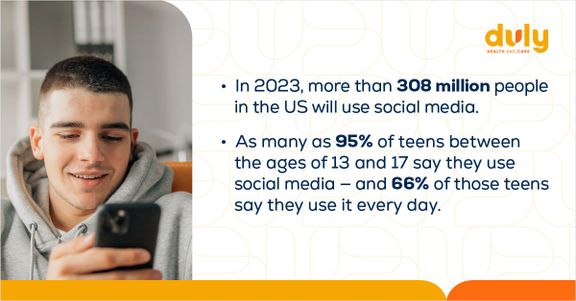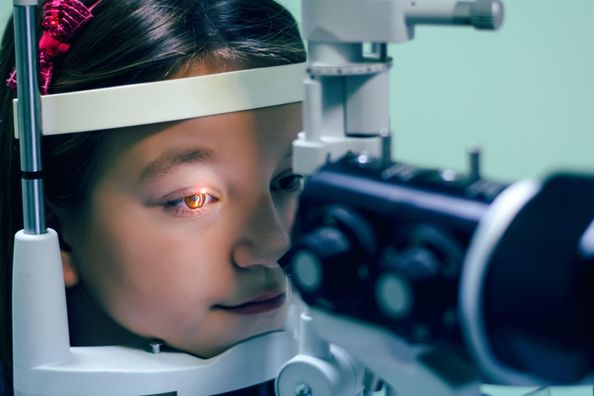Instagram. Facebook. TikTok. Twitter. Threads. Snapchat.
Social media is everywhere, and in the last 10 years, it has become a regular part of most people’s day-to-day life. This is especially true for children and teens who have social media at their fingertips.

Sometimes, it can be tough to know exactly what to say when it comes to talking about social media safety. You don’t want the conversation to feel like an interrogation or a lecture. It should be a chance to learn more about their online experiences and help them build better habits around their usage.
Here are 3 ways you can help your child be safe on social media.
1. Watch for changes in your child or teen’s mental health.
Having a healthy and safe relationship with social media isn’t just about what other people are posting. It’s also important for young people to understand how it can affect their mental health, too.
Recent research has shown that social media usage can increase a child or teen’s risk for depression and anxiety. It can also expose them to harmful content and negatively impact their self-esteem and body image.
Talk to your child about how social media makes them feel. You may be surprised how insightful your child is about the effect social media has on them. Recent studies have shown that young people are aware of the negative impact social media can have — and actually make changes in their use after reflecting on it.
Conversation Starters
- In general, how do you feel when you spend time on social media? Are your feelings more positive or negative — and why do you think that is?
- What emotions have you experienced while using social media? What specific kinds of posts, pictures, videos, or comments seem to trigger more intense feelings like excitement or jealousy?
- How do you compare yourself to other people on social media — either people you know or influencers you follow? How does this affect your self-esteem or how you feel about yourself?
- How do you decide what to post (or what not to post) on social media?
If you notice signs of depression or anxiety in your child or teen, talk to their pediatrician or a behavioral health specialist.
2. Build healthy behaviors and put privacy first.
Social media has many positive aspects, like connecting with friends and family or staying up to date about the latest world news. But it also comes with risks.
Talk to your child or teen about internet and social media safety. This might include topics like cyberbullying, identity theft, phishing, misinformation, doomscrolling, and online predators.
Encourage them to practice safe behaviors, like making their accounts private and being cautious about accepting friend requests from people they don’t know. It’s also good for them to think about what kind of content and personal information they are sharing — even accidentally.
Conversation Starters
- What steps do you take to protect your privacy and personal information while using social media?
- How do you make a decision about who to follow — or who to let follow you?
- How do you determine if the information you see on social media is true? What do you do when you come across misleading or false information online?
3. Set boundaries and be a good role model.
While social media trends are changing every day, social media isn’t going anywhere. You may not be able to predict which app is going to be popular tomorrow, but you can help your child build healthy habits for social media usage that transfer to new situations.
You can also have a huge impact just by being a good role model when it comes to your own social media usage. Demonstrate good online behavior by setting boundaries for your own usage. Be honest about your goals and progress. Maybe you want to use Facebook less or clock less screen time on your cell phone. Keep the lines of communication open.
Conversation Starters
- How do you balance your time on social media with other activities, such as schoolwork, hobbies, or spending time with friends and family?
- Why have you taken a break from social media (even a short break)? How did it make you feel, and what did you learn from that experience?
- How much time do you spend on social media each day? Do you feel like it’s a good amount, or do you think it’s too much?
It’s important to find a good balance between making sure your child is safe online and also respecting their privacy. Not only will these conversations help you understand their preferences and behaviors, but they can also help build trust between you and your child.
By staying involved, informed, and supportive, you can help your children navigate the digital world responsibly and safely.
Health Topics:








